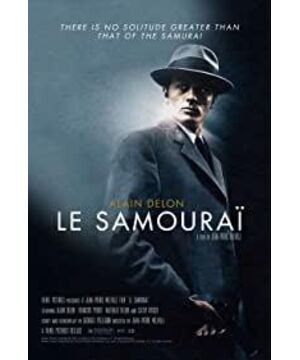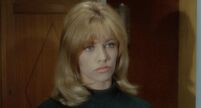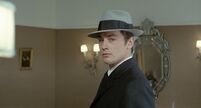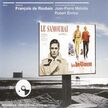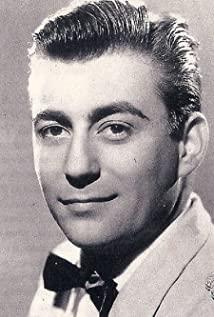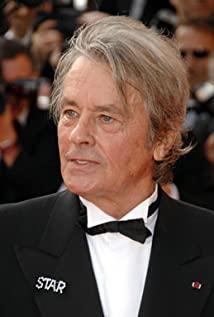Then there was a subtitle superimposed on the screen: "Samurai can endure the most unbearable loneliness in the world, perhaps only the tiger in the forest can compare with it." Although this is a movie with a killer as the protagonist, Melville did not start with a prologue to the killing, but calmly pointed out "loneliness", a sensitive word in philosophical discourse, and countless people. The situation of being being experienced.
Once it comes to the level of "loneliness", it is destined that this is not the usual police movie. The film was shot in 1967, and a year later the "May Storm" broke out in France. College students strongly demand the right to participate in and express political speech, oppose "American capitalism, imperialism, and foreign occupation", and oppose "state apparatus and bureaucratic oppression." In the film industry, French new wave movies are surging, but Melville in this period is only alone, combining elements of gangster movies and existentialism-based philosophical thoughts, as well as Eastern philosophy that has a deeper influence on him. The fateful spirit of Zhong fused together to achieve his unique style of film noir.
In the film, the "killer" is just Jeff's profession. Those who know him know that "a lone wolf" is his true identity in the world. Before every business, he would rush to a secluded car repair room, put a license plate on the stolen car, and take a gun. And every time I drove away, there were only a few disturbed dog barks on the long trail, accompanied by the dust rolled up by the car...
He has always planned carefully, skillfully, and has a good reputation. But after a hundred secrets were sparsed, he was finally hit by a female pianist head-on after an action. The strange thing is that she didn't yell, and we can't help worrying that this is another cliché story. The beautiful heroine is always too easy to fall in love with the killer with beautiful looks and melancholy eyes. Fortunately, when he went out for the first time at the beginning of the film, the director had already denied this concern. At the traffic lights, he and a beautiful woman looked at each other in a Kafka style through the car window and the rain. There was no communication, no chat, no romantic encounter, just a look, and then passed by. Although this is France known for its romance.
The police started a large-scale search across the city and arrested more than 400 suspects. Such a huge number seemed to the police detective to be nothing, because there are 10 million people in this city! Criticisms of the state's organizing system are casually pointed out here. The police finally released him because of the denial of the female pianist. He didn't understand why. But calmly he still analyzed two reasons: either she wanted to tease the police, or someone asked her to do so. Sure enough, the lover of the female pianist is the boss behind the murder.
Because he was suspected by the police, the employer wanted to kill him. The police also bit him tightly and followed him. When the police detective threatened and lured his girlfriend, he clearly told her, "The truth is not what you said, but what I said!" This is a person who has no faith, no principle, right and wrong, black and white unknown, only benefits. world. Years later, Wu Yusen, a Hong Kong admirer of Melville, used another killer in "Blood Two" to say the words "This world has changed, and we are no longer suitable for this arena". However, in this film, this tough lone killer just tells people that he never loses, he must act first!
He cleverly got rid of the policemen who followed him. After stealing a car on the side of the road, he rushed to the employer's house, preemptively, and brought down the owner of his previous and next business. Then he rushed to the club again and quietly listened to the female pianist's performance and pointed a gun at her-it turned out that this was the last deal given by the employer he killed. At this time, the gunfire of the police rang, and he fell on his back. When the proud policeman picked up his gun, he found that there were no bullets in the gun!
Although it is a movie depicting a society of gangster violence, it does not have many action scenes. In a very small number of shooting scenes, it is handled cleanly. The killer played by Alain Delon is accustomed to being silent, and he walks alone in a cold city wrapped in a trench coat with a raised collar. Although he is a ruthless killer, he has his own set of moral standards, just like a modern warrior advocating honor and morality. He has no friends, and doesn't mind that his girlfriend has other accounts. He just goes to see her every time he kills, as if it's just because she "likes the feeling of being needed." At the same time, he would not accept the contract of the gang to kill the female luthier, because he had been blessed by the female luthier, and he would rather sacrifice himself to be moral.
In order to present the lonely inner world of the killer, Melville adopts a very stylized minimalist approach, which is extremely streamlined in terms of scenes, lighting, performances, and dialogues. Simple enough to make people feel cold, the modern city is as out of place as in Antonioni's lens, yet extremely powerful, full of inescapable destiny!
Like all real masters, Melville's lens only captures the world calmly. In the rare case of dialogue, without adding a narration or inner monologue, every character appears secretive. This is not about stopping at the surface, or not knowing how to dig deep, but the surface is enough, the world is secretive, and true communication transcends language. Those who understand do not need to explain more, and the intuition at a glance can judge and convey everything. Just like the killer and the female pianist, they are the two loneliest people in the film. Their identification and communication of loneliness is already inconsistent in the quiet stare.
It is generally believed that Melville treats the women in his film as if it is irrelevant. In fact, this is a misunderstanding. The female pianist in this film may have more words in life than the lone ranger. less. And her experience and performance of loneliness has surpassed being alone, her loneliness is that she can still smile and play the piano to everyone in the face of death. When he came to the club, she had already expected everything, but she still played her piano calmly, reminding him to leave quickly. When he took out the gun and pointed at her, she smiled unexpectedly, as if a mother was facing a child's prank, and asked softly "Why is this?"
Why is this? It is for morality, and not only for morality. In a world where morality has collapsed, his arrival is not so much the completion of a business agreement, as it is a generous death. For a lone ranger who deeply appreciates loneliness, the fate of death is already inevitable, but time, place and method need to be considered, and the best ending is to die in front of a "insurgent" person!
And "death" is really the only philosophical proposition! (Camus)
View more about Le Samouraï reviews


